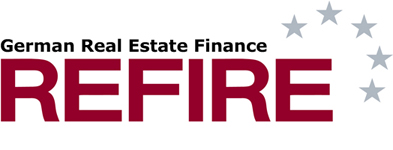
Europace AG
EPX July
EPX July
After taking a bit of a breather over the past couple of months, the Europace German House Price Index (EPX) continued its upward climb in July, and with a rise of 0.70% to 113.21 on the Europace scale, has now reached its highest-ever level.
The rise in the barometer was largely due to a disproportionate spike in the price of apartments (condominiums) of 1.43% on the previous month. On a twelve-month basis, prices across all residential sectors have risen by 5.79% on average, with the market for existing properties showing a 6.67% rise. New-build one- and two-family homes rose on average by 5.34%.
The Europace index is based on the actual prices achieved using the Europace transactions platform, a matching platform for financial providers and thousands of mortgage-seekers in Germany, which is responsible for about one in ten of every German mortgage issued. The platform is owned and managed by Berlin-based financial service provider Hypoport, whose nationwide financial intermediary Dr. Klein gives it great clout in drawing in clients. The index is one which we at REFIRE watch very closely because of its broad database, its lack of subjectivity, and its emphasis on actual prices achieved, rather than advertised prices.
According to Europace AG chairman Thilo Wiegand, “We’re expecting that purchase prices will remain stable to slightly rising in the next couple of months. But there are risks, notwithstanding the positive economic environment.” Aside from the ongoing euro-crisis, Wieland pointed to the upcoming German elections and the jostling for coalition positions in the election’s aftermath, which could negatively effect the residential sector.
“The new changes in the law that are being discussed such as the capping of rents on new leases or the introduction of a new wealth tax are all undermining the incentive to invest. The new building activity we’re beginning to see, particularly in the larger cities, would immediately drop off, with negative consequences for rent levels”, he said.
“This is a clear indication of how much politics is now setting the framework for conditions in the residential sector. Politics is also largely responsible for the level of transfer tax or stamp duty, or the way in which municipal housing companies are put out to competitive tender. The setting of criteria other than merely who bids the highest price, such as who will offer the best guarantee for stable rents or will commit the most to affordable housing for low-earners – all these factors have a direct impact on the level of new house-building.”
Figures released mid-month by the VdP Verband deutscher Pfandbriefbanken, the association of Pfandbrief-issuing banks, largely concur with the research published by Europace. The VdP calculates its figures in a different manner, and naturally draws heavily on data provided by its 38 member institutions.
Their figures show a rise last year of apartments nationwide of 6%, with residential rents for new leases rising by 4.6%. They show a year-on-year rise of the prices for owner-occupied housing in Germany rising in this second quarter by 3.3% on average. Apartments (condomiums) are 6% more expensive than in the same quarter last year, while one- and two-family houses rose by 2.3%. Multi-family homes rose by 4.9%, with rents on new leases 4.6% up on a year ago.
According to VdP’s CEO Jens Tolckmitt, “Once again, the upward trend in German housing prices is attributable to the attractiveness of large towns and cities as well as of university cities. This is where growing numbers of inhabitants and households are fuelling a steady demand.”
He added that it was gratifying to note that the number of building permits is increasing, albeit from a low level, and a continuation of this trend could bring some relief to the housing market.
The German offices market too was characterised by rising prices in 2Q13, with the vdp Capital Value Index for Office Buildings climbing by 5.6% over 12 months. Both new rental contracts and cap rates contributed. “We see sharply rising demand from domestic and foreign investors on the one hand, faced with a limited supply on the other,” said Tolckmitt.
